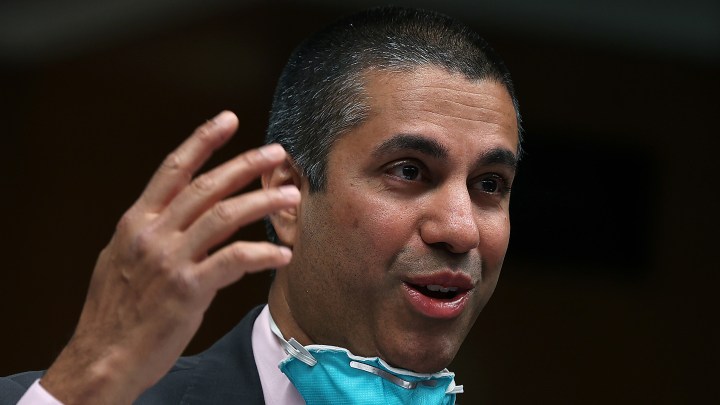
Change in FCC leadership may renew net neutrality battle

The chairman of the Federal Communications Commission, Ajit Pai, announced Monday he will be stepping down when President-elect Joe Biden takes office in January.
The departure of Pai, a Republican, would leave open the possibility of a Democratic majority on the commission and is expected to spark a number of new policy fights. One of those is likely to be over the issue of “net neutrality,” the principle that internet service providers must treat all data the same and not prioritize or penalize certain content with faster or slower transmission speeds.
Under Pai’s leadership, the FCC voted to roll back net neutrality rules in 2017. That ignited fears of stifled competition. Imagine Comcast, which partially owns Hulu, slowing down access to a competitor like Netflix.
“I just haven’t seen this idea that there’s a lot of throttling of content,” said Shane Tews, a fellow with the American Enterprise Institute. “We’ve proven that that wasn’t a problem.”
However, David Choffnes, a professor at Northeastern University who studies network performance, said just because it hasn’t happened yet doesn’t mean it won’t in the future.
“We shouldn’t decide whether net neutrality or the lack of it has been successful based on a few years,” Choffnes said. “Historically, when we see opportunities for an unlevel playing field, that’s taken advantage of.”
The stakes have never been higher around fairness and equity in broadband access, said Kevin Werbach, a business ethics professor at the Wharton School.
He added, “Broadband’s an essential service, and it’s hard for anyone to disagree with that. Right now, we’ve seen just how vital it is. And we’ve also seen the challenges.”
Werbach said he would like to see Congress take up the issue so that the rules don’t keep changing with each new president.
There’s a lot happening in the world. Through it all, Marketplace is here for you.
You rely on Marketplace to break down the world’s events and tell you how it affects you in a fact-based, approachable way. We rely on your financial support to keep making that possible.
Your donation today powers the independent journalism that you rely on. For just $5/month, you can help sustain Marketplace so we can keep reporting on the things that matter to you.

















